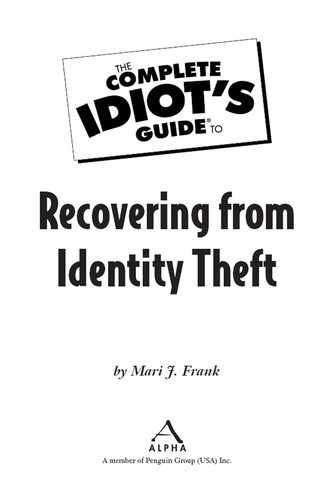Cyber Identity Theft Is Real
You may have become the victim of cyber identity theft in a number of ways. Someone might impersonate you on a social networking site to embarrass you as a form of revenge. Hackers might take over your computer to send spam or perform attacks on other computers using your IP address. Or the person might trick you into revealing the user-ID and password for your online account or use more typical identity-theft techniques to take over your account, or create a new account, e-mail address, blog, or website in your name. Businesses find out that thieves create fake websites or clone a company’s website to intercept traffic and start taking orders and credit cards from customers who think they’re dealing with the real business.

Legal Lingo
Cyber identity theft occurs when someone impersonates you online. It can be for financial gain, to commit other crimes, or to get revenge. Except when the fraudster uses your Social Security number online to create financial accounts and get into your bank, it’s possible for someone to commit cyber identity thefts with relatively little personal information about you. The IP address is the identifying number of your connection to the Internet.
You will usually find out about cyber identity theft in a very negative way. You may be contacted by an angry stranger who read something your impostor wrote on a blog or on a website, allegedly by you, which put your reputation in jeopardy. Your impersonator might have written a threatening e-mail to your boss. Some of the horrendous cases I’ve dealt with included a victim having strange men show up at her apartment requesting sex as a result of provocative invitations created by her impostor revealing the victim’s home address and private phone number; an e-mail address created in the name of an ex-spouse by her former husband, threatening to kill their children so he could use the material in court to win custody; and a victim who learned that his profession as a psychologist was used by a former student to create a website to give online counseling sessions for a fee.
To address the problem, you must first find the information. Do a web search of yourself with your name in quotes, such as “Mari Frank” or “Mari J. Frank”. Don’t limit your investigation to one search engine, as each one indexes the Internet differently. Dogpile (www.dogpile.com) will bring you the top combined results from Google, Yahoo!, Bing, and Ask.com, and so can save you time. Also, check the “images,” “news” and “newsgroup” directories available on individual search engines as well.
Once you have evidence of your stolen identity, call your local law-enforcement agency and ask for the high-tech crime unit. You’ll need to complete an FTC affidavit and file a report with law enforcement. But first I must warn you that law enforcement usually won’t want to give you a report because it is unlikely that they will have the resources to investigate this labor-intensive crime unless there are many victims, or if money laundering or terrorism might be involved.
In that case, just ask for an informational identity-theft report. Tell them you need the report to send to the Internet service providers so that they will help you take false entries off the net and assist in the investigation. With the police report, the completed affidavit, government-issued identification, and other information about your own Internet service provider, contact the service provider that your impostor is using.
..................Content has been hidden....................
You can't read the all page of ebook, please click here login for view all page.
